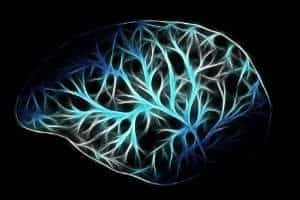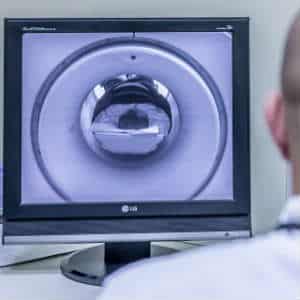According to the Centers for Disease Control & Prevention, around 75% of all reported traumatic brain injuries are concussions. In years past, concussions weren’t taken very seriously but the medical community now knows that a patient with even a mild concussion should be monitored closely. In fact, the definition of a concussion is a head injury which results in the temporary loss of brain function. Considering that the brain is arguably the most important vital organ, any loss of function should cause for concern.
Common Causes Of Concussions At Work
It doesn’t matter what industry you work in, everyone is at risk of sustaining a concussion while at work. The most common accidents which could result in this form of a traumatic brain injury include:
- Slip and fall accidents
- Accidents involving heavy machinery
- Being hit by a falling object
- Car accidents
- Explosions
When an accident results in a blow to the head, the impact causes rapid acceleration. Although cerebrospinal fluid exists to cushion the blow, if the acceleration is too rapid, the cushion simply isn’t enough and the soft tissue of the brain will come into contact with the hard surface of the skull.
Although some patients may have clear trauma like cuts and bruises on the outside to show that they need to be checked for a concussion, many show no outward signs, which is why it’s very important to be aware of the symptoms of a concussion.
Possible Short-Term Side Effects
The short-term side effects of a concussion, which can last for days or weeks and which may not occur immediately, include:
- Headaches
- Dizziness
- Ringing in the ears
- Fatigue
- Vision changes
- Light sensitivity
- Sound sensitivity
- Nausea
- Slowed cognitive function
- Mood swings
- Loss of balance
The possible long-term side effects are:
- Difficulty concentrating
- Personality changes
- Loss of memory
- Depression
- Anxiety
- Issues with smell and taste
Any of these symptoms could be severe enough to keep a patient from returning to work for an extended period of time – especially if additional trauma occurs resulting in CTE.
What Is CTE?
CTE stands for Chronic Traumatic Encephalopathy and is the term for brain damage that occurs after a person sustains multiple head injuries.
At some point after a repeated trauma, a type of protein called Tau forms in clumps. Normally Tau proteins help microtubules function properly but when a cell is damaged, Tau is released and floats freely, gathering in clumps. These clumps can spread to other brain cells, killing them. Although the spread of these clumps is slow, it can continue even if the patient never has another blow to the head, and the damage is irreversible. Ultimately, even if the accidents happened years before, the condition can and will continue to progress over time. At this time, there is no cure.
Today, many people have heard about CTE because of headlines involving football players who have been hit in the head multiple times during practice and games, but what they don’t realize is that there are hard-working Americans, like construction workers, who are also at risk due to the nature of their work.
CTE can result in the same symptoms as a concussion in addition to:
- Emotional apathy
- Aggression
- Difficulty swallowing
- Emotional instability
- Impulsive behavior
- Dementia
Not only can this condition impact the patient and their career but also their loved ones.
Does Workers’ Compensation Cover A Concussion Or CTE?
Yes, if it can be proven that the head trauma occurred while at work, workers’ comp should cover the cost of the medical treatments required for the patient. In addition to this, if time is needed away from work, a small fraction of the lost wages can be obtained. If the employee is no longer able to return to work, our law firm can also identify other legal avenues that may provide them with compensation so that they can remain financially stable while getting the care they need.
How Can The Disability Guys Help?
Since concussions and brain injuries are frequently called “silent” injuries, meaning that the patient can look completely normal from the outside, it can be difficult to prove that the employee is unable to work because of their medical condition. It can also be difficult to prove that the accident which caused the damage happened at work, especially if the symptoms slowly worsen over time.
Our legal team has worked with the victims of traumatic brain injuries for decades and we know the impact it can have on a worker and their family. Not only are we familiar with every aspect of the law and the process of filing a claim, but we also consult with numerous medical experts who can help create a timeline showing how the head trauma has impacted our client’s health and ability to work. This medical evidence can be crucial to proving that a workers’ comp claim should be approved.
For more information on how we help clients with a TBI, contact our firm today. Our experienced lawyers are ready to answer all of your questions.

